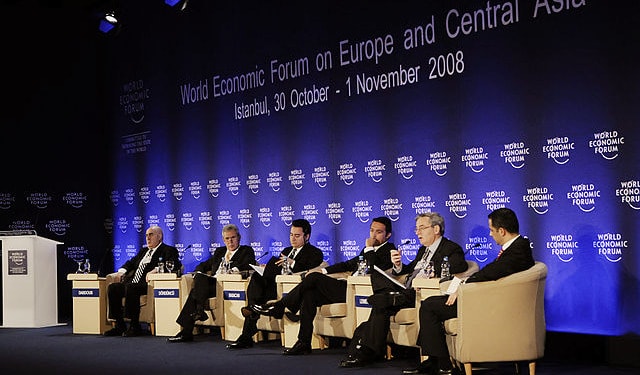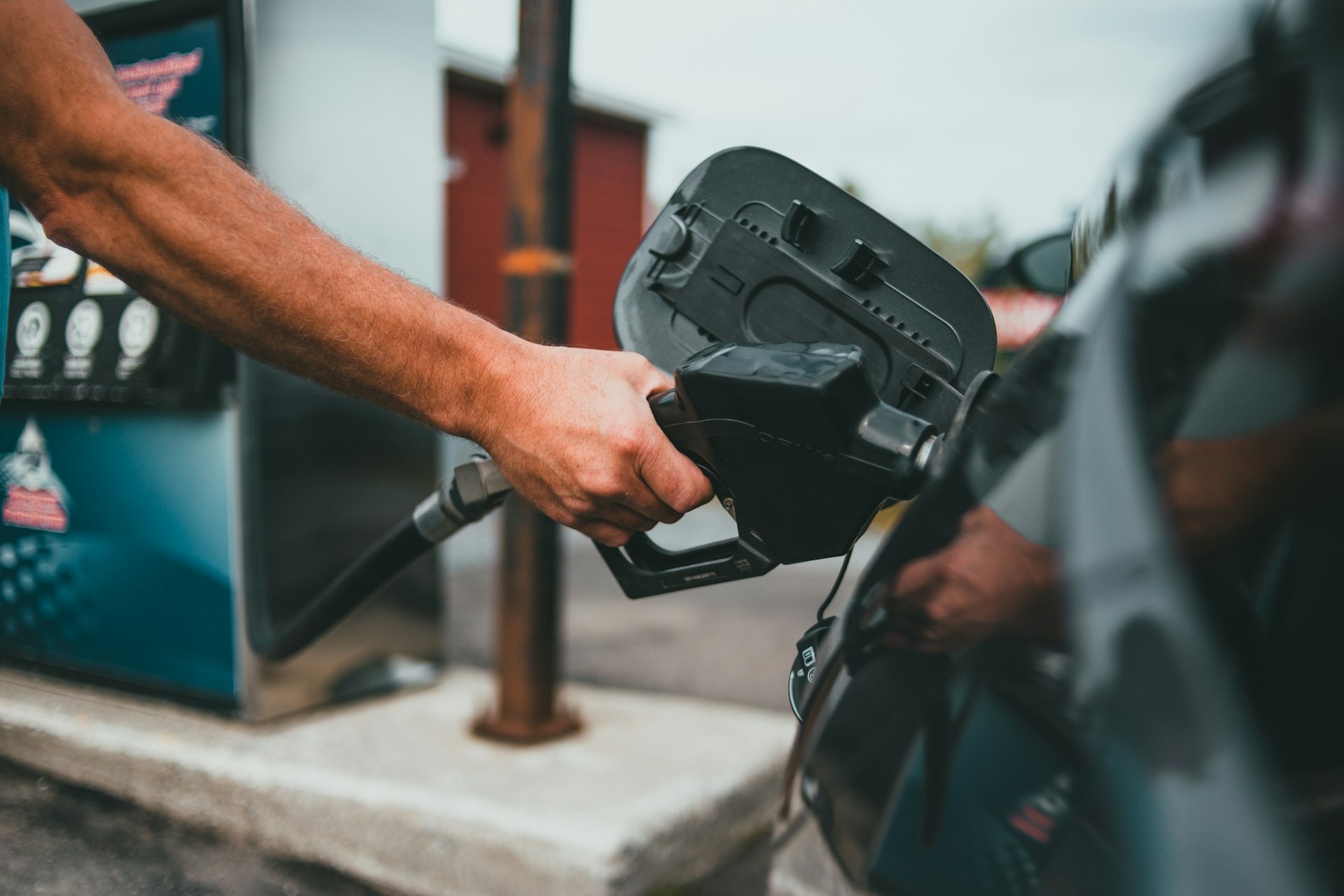In January of 2020, the World Economic Forum (WEF) met in Davos, Switzerland, to discuss society’s biggest economic issues just as the COVID-19 virus was on the brink of exploding. Now, in the spring of 2022, the WEF has returned to Davos after a two-year break to discuss the raging and amounting economic issues posed by the lingering pandemic and Ukraine-Russia war.
After two years of a pandemic that left million across the globe relying on government emergency assistance and — most recently — a war that has caused a global food crisis, many pressing issues are anticipated in the discussion.
Discussions on Ukraine are at the top of the agenda, with the Ukrainian President Volodymyr Zelenskyy’s address opening the meeting on Monday.
The WEF 2022 meeting is taking place over a four-day period, May 22-26, under the theme “Working Together, Restoring Trust.”
What has been discussed so far?
Kicking off the forum on Monday was an address from Ukrainian President Zelenskyy on video. In his address, Zelenskyy called for global assistance and urged leaders to come together and help his country — something expected from the Davos meetings.
Zeleneskyy described the Russian Federation as a “brute force” and later on expressed regret that the countries did not implement sanctions sooner. Now, he is calling for more help, military equipment and “maximum sanctions” as well as a “complete withdrawal from the Russian market.”
Among other comments on the Ukraine-Russia war, President of the WEF, Borge Brende, called for a “Marshall Plan” for the reconstruction of Ukraine while WEF founder Professor Klaus Schwab stated in his opening remarks:
“Our first thoughts are with the war in Ukraine. Russia’s aggression on their country will be seen in future history books as the breakdown of the post-World War II and post-Cold War order. This is the reason why we speak about a turning point in history. In Davos, our solidarity is foremost with the people suffering from the atrocities of this war.”
European Commission President Ursula von der Leyen also spoke on Ukraine and the global food crisis on May 24.
In her speech yesterday, von der Leyen spoke on the pressing issue concerning Ukraine now: Ukraine’s escalating grain export challenges. She noted Russia’s blockage of ports and bombing of harvest warehouses is a way President of Russia Vladimir Putin is “using hunger and grain to wield power” spurring global market prices while Russia hoards “its own food exports as a form of blackmail.”
Estonian President Alar Karis told the WEF that support is growing in Europe to send warships to the Black Sea to escort Ukrainian ships carrying grain.
Besides the war in Ukraine, Climate Change is shooting to top of the agenda
Another topic high on the agenda is climate change — especially as Russia’s invasion into Ukraine has been linked to significant environmental damage which may hold them accountable for environmental war crimes.
Alongside environmental war crimes in Ukraine, the European Union’s latest push to pass a Russian oil embargo — and to simultaneously focus on the new EU green energy deal REPowerEU — will most likely bring further discussion of climate change at the Davos meetings.
Von der Leyen spoke on the subject Tuesday, alongside Spanish Prime Minister Pedro Sánchez.
She spoke, as expected, primarily about the war in Ukraine and also suggested how to fight climate change and change globalization so that all can gain.
In part of her speech, she mentioned the EU’s latest green deal — RePowerEU — ”to faze out Russian fossil fuels and to fast forward the green transition.”
As many as a third of the panel discussions on the main stage are related to climate change issues — few business leaders will get away with an interview that does not mention ESG — the investing approach that takes into account environmental, social and governance factors:
Not many CEOs explain how ESG is pro-capitalism, good business, and just simple common sense as well as @BankofAmerica’s Brian Moynihan. Other CEOs should just crib his comments. @SquawkCNBC @andrewrsorkin
— Tony Fratto (@TonyFratto) May 23, 2022
Laurence Tubiana, CEO of the European Climate Foundation, told Bloomberg how things had changed for the better. In 2014, only a year before the Paris Climate Agreement was signed, all climate-related panels happened in a tent outside the main conference area. “It’s totally different now,” she said.
The Biden Administration is also expected to speak — U.S. Commerce Secretary Gina Raimondo delivering the speech on behalf of U.S. President Joe Biden who is currently in Tokyo discussing matters with the Quad alliance.
Another matter on the agenda is geopolitics, especially as the pandemic and the war in Ukraine have significantly shifted economic and geopolitical influence.
On Tuesday, President of Poland Andrzej Duda and Polish Prime Minister Mateusz Morawiecki, who have previously shown their everlasting support for Ukraine, were among the panelists speaking at the “Geopolitical Outlook” session.
Preparing for the next pandemic – yet some have concerns about what the forum will actually accomplish
Several billionaires are expected to be present in Davos including CEO of Amazon Jeff Bezos, CEO of Microsoft Bill Gates, Chairman of Adani Group Gautam Adani and many more. Gates in particular participated in one of the most important panels, “preparing for the next pandemic.”
During the panel, Gates mentioned what the next 10 years should improve upon if another pandemic were to occur.
“We should have far, far better diagnostic technology — be able to scale up every country within a month to diagnosis their entire population,” Gates said. “Much better therapeutics, some of which will be pathogen and independent. And then as we do come up with vaccines, we want vaccines that are infection blocking and long duration.”
Yet as the WEF is expected to bring up many of the world’s most current and important issues, many are saying the world’s wealthiest people being invited contradicts the problems the forum is trying to solve.
According to a report from Oxfam published in January, the world’s billionaires added $5 trillion to their fortunes during the pandemic. In fact, the world’s 10 richest men saw their wealth double between March 2020 and November 2021 as millions of people across the globe fell into poverty — relying on emergency government support to get by — and as the global economy came to a standstill.
Many have highlighted the irony of billionaires who benefited from the pandemic attending the event, such as Pfizer CEO Albert Bourla who made $24.3 million and is attending the Davos meetings. Other attendees appear to be showing up on private jets, something that is going viral on social media, but not for a good reason.
People are concerned that billionaires’ input in such decisions could further protect their investments and not aid those who have been suffering from the world’s most recent global catastrophes.
https://twitter.com/sophielouisecc/status/1528683399573082115
Despite these concerns, as the WEF talks continue throughout the week, the world hopefully awaits positive solutions to the world’s most pressing issues.
Editor’s Note: The opinions expressed here by Impakter.com columnists are their own, not those of Impakter.com — In the Featured Photo: The World Economic Forum 2008 in Istanbul from October 30 – November 1, 2008. Source: Wikimedia.














